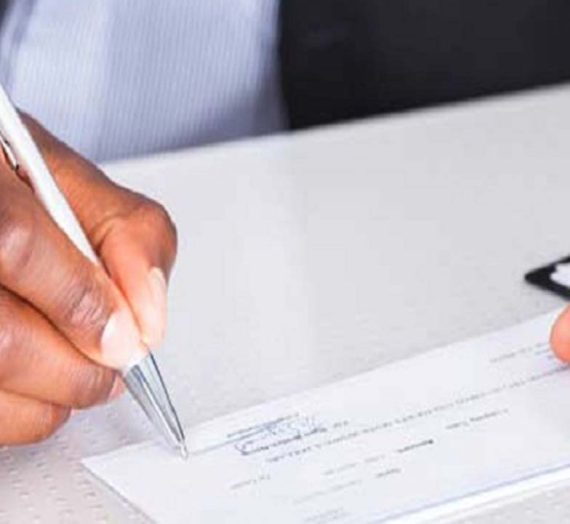In this piece, we will deal with some points of law you should not forget when you are dealing with the Nigerian Police. Our discussions cover the EFCC as well as other security agencies in Nigeria. So, our repeated use of ‘Police Officer’ does not exclude other security agencies.
Also, in between our discussion, we will make reference to what the Courts have said while calling the Police to order and enforcing the rights of citizens.
Is Police Torture Legal in Nigeria?
No, it is not. The torture of persons by the Police is illegal in Nigeria. Torture by the Police amounts to an abuse of the fundamental rights of suspects who are under investigation for committing crime(s). The Police have no right to torture a suspect – whether as part of means to obtain a confession or as part of routine investigations. To make matters clearer, the Anti-Torture Act of 2017 makes the torture of suspects in Nigeria a crime. This applies to the Police, the EFCC, and other security agencies.
For emphasis, Section 9(1) of the Anti-Torture Act is to the effect that anyone who tortures a suspect can be prosecuted, convicted, and sentenced to imprisonment for as much as 25 years.
You can read – Sections 2, 3, 9 of the Anti-Torture Act 2017
In addition to the provisions of the Anti-Torture Act, a police officer involved in the torture or dehumanizing treatment of a Citizen could be dismissed from the Police Force after proper administrative/disciplinary action. On the 9th of August 2022, a Police Officer who was caught in a viral video beating a man with machete was dismissed from the Police Force. You could argue that if the video not gone viral, nothing would have happened and the officer would have continued on his merry way. Our Nigerian minds might want to agree with you in part. But, if such a case was tried in Court, chances are the Police officer and the Police Force would bear serious consequences as well.
Where a person is tortured to death, the Police officer (or other security official) responsible for such can be tried for murder and if found guilty, he or she can be punished accordingly – Section 9(2) of the Anti-Torture Act. In other words, a Police officer who indiscriminately[1] kills a fellow citizen has committed murder.
With all we’ve said you might still be tempted to ask – do Police officers ever get punished for indiscriminately killing innocent citizens? Yes, they do. The instances of these punishments may not be frequent enough to bring sanity to the system but the law still takes its course in many cases.

Here are some links to some news reports of Police officers punished for their wrong conduct;
- Policeman caught beating man with cutlass faces orderly room trial at Force HQ
- Police officers who assaulted man to face disciplinary action – Spokesperson
- Dismissed Nigerian Police Officer Sentenced To Life In Prison For Killing Football Fan, Kolade In Lagos
- Policeman wey kill man sake of N100 bribe go die by hanging
- Dismissed SARS officer sentenced to death over extra-judicial killing
We have mentioned that the torture of persons (suspects) by the Police amounts to an abuse of the fundamental human rights. By Section 36(5) of the 1999 Constitution, every suspect even when eventually charged to Court is presumed innocent. Also, by Section 34 of the Constitution every individual (including a suspect) has the right to be treated with dignity. In effect, a suspect that has been tortured can sue the Nigerian Police Force for their infringement of his fundamental rights and claim monetary compensation.
We will give you an example of a case in this regard.
This example is a real-life story and it happened in Yola, Adamawa State. The story is as simple as it is common[1]. On the 16th of May 2016, Police officers wearing mufti raided Zaranda Street in Yola. Mr Kabiru Ahmadu who was present during the raid asked the Police officers to identify themselves. This annoyed the Police Inspector who was part of the operation. And Mr Ahmadu was arrested simply because he had the ‘guts’ to ask the Police officers dressed in mufti for some identification. In Mr Ahmadu’s words to the Court, the Inspector said in hausa “ba kasan yan chin ka ba, sai naji maka da dare” meaning “You claimed to know your right I will deal with you tonight”.
Mr Ahmadu was taken to the Police station and locked up. Throughout the night he was beaten until he went into a coma. When the Police officers saw the state in which he was, they attempted to take Mr Ahmadu home to his family. Mr Ahmadu’s father refused to accept his son in such terrible condition insisting that when the Police arrested his son, he was healthy. The Police officers then took Mr Ahmadu to the Hospital where he remained unconscious for 30 days.
Mr Ahmadu sued the Police and the Inspector. The Court gave judgment in his favor and awarded damages (monetary compensation) against the Police.
Don’t forget:
“The mere allegation of crime or wrongdoing against a suspect irrespective of its seriousness cannot operate to curtail the fundamental rights of the suspect nor can it operate to justify the incarceration and torture of the suspect.”
Statement of the Court of Appeal in the case of Duruaku v. Nwoke
Can the Police Detain Anyone for More than 24 to 48 Hours?
Generally speaking, the Police lack constitutional powers to detain anyone for more than a maximum of 48 hours without a court order. But in limited cases, they can detain suspects for more than 48 hours. Section 35 of the 1999 Constitution of the Federal Republic of Nigeria is clear on this point.
Let’s make it a bit clearer – By Section 35 of the 1999 Constitution, a Police officer can detain you for a maximum of 24 HOURS. After that, they must charge you to court. But if it is not possible to bring you to court within 24 HOURS because no court is close by or the following day is a weekend, they must bring you to court within a maximum of 48 HOURS. After this 24 or 48-hour limit, only a court can order that you be detained further. The Police cannot detain you further on their own.
Now if the Police cannot bring you to court within the 24 or 48-hour limit, you must be released on bail except for those cases where you are suspected of having committed an offence punishable with death (i.e. capital offences). The Police have no power to release you in capital offense cases so they must charge you within the 24 or 48-hour time frame or bring you before a court to obtain an order for further detention[2].
Glory Okolie’s Case
You might have read of the case of Glory Okolie; the suspected IPOB spy detained for months by the Police. Some news reports have her name as Gloria Okolie. After her release, she sued the Police and the Court gave judgment in her favour.
What to Note While in Detention
- Understand that at the point of arrest, the law presumes you innocent of committing any crime until the contrary is proven in a court of law.
- Ask to contact your family, friends or a lawyer. You have that right.
- Do not confront Police officers violently or engage them in a heated argument.
- If you have not been told, ask them why you are being arrested and detained.
- Try to memorize the officer’s name. If they are in mufti, ask the arresting persons to identify themselves.
- If you are assaulted, tortured and wounded by the security agent, ensure to take photographs of the wounds and request a first aid.
- Say nothing, if you are scared or in doubt and speak with your lawyer first. In other words, you have a right to keep shut until you have spoken with a lawyer or other person of your choosing – Section 35(2) of the Police Act and Section 36(2) of the CFRN. In case you are to be arrested, the Police are to inform you of this right – section 35(2) of the Police Act
- You must not make a statement at the Police Station, but it is advisable to do so.
- Sign the statement when you are satisfied that it is accurate and reflects the facts fully.
- If the Police obtain your statement by force, threat, promises or favours, that statement cannot be used against you in court.
Can the Police Declare Someone a Criminal?
No, the police have no power to declare anyone a criminal. Such power lies with the Court. The police only have power to investigate a crime that they have reason to suspect has happened or is about to happen. They also have powers to arrest people suspected to have taken part in committing a crime. Once these suspects are arrested, they are to be taken to Court where they will be put on trial for the alleged offences. After the trial and if the Court finds them guilty – they will then be convicted and the appropriate sentence will be meted out on them. It is at this point of conviction that a person is really ‘declared a criminal’ and it is only the Court that has the powers to make such a declaration (or in other words convict anyone of crime i.e. declare someone a criminal).
To add to the point being made here, don’t forget that the Constitution presumes everyone innocent until their guilt is proved in Court and accepted by the Court. Because of this presumption of innocence, the police cannot legally declare anyone a criminal before such a person has had his day in Court. See Section 36 (5) of the Constitution for the presumption of innocence provision.
If I am a Suspect, Can the Police Arrest My Relative when They Don’t Find me?
A situation where the Police arrest someone in place of another is called ‘arrest in lieu’. And this practice is illegal. We should sound like a broken record on this point by now. You can read our previous article on this issue here.
Summarily, it is illegal for the Police to arrest you for an offence you did not commit and in place of another person (the real suspect). Criminal liability is not sexually transmitted neither is it transferable by blood ties.
Various provisions of the law support what we have said above, they include; Section 7 of the Administration of Criminal Justice Act 2015 and Section 36 of the Police Act 2020.
Can the Police Just Pick You up and Throw you into a Cell without Any Lawful Instrument?
The Police can arrest you. In some cases, the Police do not need a warrant of arrest (i.e. a lawful instrument) to arrest you. The Law allows the Police to arrest but the Law puts some checks in place to prevent them from abusing this power of arrest. One check is that, the police cannot (or should not) detain you for more than 48 hours without a Court order, just as we have already mentioned.
More precisely, the Police can you arrest without warrant (i.e. a lawful instrument) in some instances provided for under the Law. Section 38 of the Police Act lists some of these instances –
1. Where the offence is committed in the presence of the Police officer
2. When a person escapes from lawful custody
3. When someone obstructs the officer in the performance of his duty
4. When someone is found in possession of an item reasonably suspected to be stolen
The long and short of what we have said is that even where the Police arrest you without a lawful instrument (i.e. a warrant of arrest) they cannot detain you beyond the constitutionally allowed time limits. If they do so, you have the right to sue for the enforcement of your rights.
Can the Police Arrest you because of a Debt, Land or Family Issue?
Let’s make it very clear: The Police are not debt collectors and have no business with resolving civil disputes. In our previous article on whether you can be arrested for owing a debt/loan app or Bank, we made it clear that the Police are not debt collectors. The duties of the Police under the Police Act do not include the collection of debts or even the settlement of civil disputes.
Also, don’t forget, it is not a crime to be in debt in Nigeria. There is no law that makes owing of loans or debts a criminal offence. At best, owing a loan and not paying it back would constitute a civil dispute. And remember, the Police have no business in settling civil disputes. That business is for the Courts. Just to be clear, civil disputes also include – family crisis, land ownership tussles etc.
Should you use the Police to haunt your debtors under the guise that they have defrauded you, you could be courting trouble for yourself. What we fully mean is that you could and would be liable for any fundamental rights infringement the Police carry out on your debtor due to your petition to them (the Police). In the words of the Court of Appeal; “The position is and has always been that the private individual who uses the police to settle a private score, would himself be liable for the wrongful act of the police.”[4]
Also, the police themselves have a duty to sift through petitions presented to them to tell if a truly criminal element exists that is worthy of the exercise of their powers.
Let’s not forget, you are not to be arrested merely because of a civil wrong – Section 32 (2) of the Police Act.
The law is settled that in exercising their powers under the law, the arresting authority must act strictly within the confines of the law. Implicit in the powers of the police or any law enforcement agent to arrest or apprehend a person upon a suspicion of having committed a crime is the duty and responsibility to scrutinize any complaint laid before them and to be reasonably satisfied that there is a ground to proceed on an investigation of a complaint.
– Statement of the Court of Appeal in the case of Obinegbo & Ors v. I.G.P & Ors
Key Take Aways:
Point 1: Police Men are not above the Law
A key point you should take from this piece is this – Police officers are to carry out their duties within the limits of the law. Therefore, there are things they are not legally allowed or permitted to do.
So, when Police Officers cross the line (or break the law) in the course of carrying out their duties, they can be sufficiently punished.
As we have mentioned already, a Police officer could be convicted of the murder of a citizen. You can sue a Police officer who violates your fundamental human rights and be compensated in damages. In addition, a Police officer could be dismissed from the Police force for his professional misconduct.
Point 2: Police Officers are to protect the Rights of Citizens, not abuse them
By Section 4 of the Police Act, the Police are to protect lives and property and by Section 5, they are to promote and protect the fundamental human rights of citizens in their custody and all other citizens. The Fundamental rights in question extend to fundamental rights guaranteed under the African Charter on Human and People’s Rights (Ratification and Enforcement Act).
You are not to be arrested merely for a civil wrong – Section 32 (2) of the Police Act.
The Police are not debt collectors, and are not to settle family disputes and business contracts.
By Section 35(1) and (7) of the CFRN the arrest and detention of a person/citizen is to be on the reasonable suspicion that a CRIME has been committed. Usually, the instigation of the Police to recover debts (or to get involved in civil disputes) is carried out by fellow citizens but the Courts are now willing to and often award/grant damages against persons that wrongfully instigate the police in such matters.
Also, the police themselves have a duty to sift through the petition presented to tell indeed if a truly criminal element exists that is worthy of the exercise of their powers.
Written by Nkobowo Frederick LLB

Nkobowo Frederick Nkobowo is an astute lawyer and alumnus of the University of Uyo. He is currently a Senior associate in Compos Mentis Legal Practitioners; one of Nigeria’s foremost indigenous law firms. As part of the Dispute Resolution Practice group of the firm, he currently specializes in Banking law, employment law as well as oil and gas litigation. He is also an Associate of the Chartered Institute of Arbitrators, Nigerian Chapter.
In the Course of his practice, he has successfully represented corporate organizations and individual clients in handling various high net worth claims in various Courts across the nation. With a penchant for detail, he is known to sift through the mesh of facts and law to achieve justice for clients within the bounds of the law. This has led to the win of many multi-Million naira claims filed against his Clients.
When he is not solving knotty legal problems, he could be cooking another hopefully intriguing meal, savoring art or reading. In 2021, he published his first literary work named “Brambles and Roses”.
Case references:
Akila v Director SSS (2014) 2 NWLR (Pt 1392) 443
Obinegbo & Ors v. I.G.P & Ors (2020) LPELR-50980(CA)
Duruaku v. Nwoke (2016) All FWLR (Pt. 815) 351 at 395, Paras. E- F
NPF & Ors V. Omotosho & Ors (2018) LPELR-45778(CA)
Nkpa V Nkume (2001) 6 NWLR, PT 710, 543
Ogbonna V Ogbonna (2014) LPELR-22308 (CA)
Salami V Olaoye (2018) LPERLR-47256 (CA)
Gusau V Umezurike (2012) AFWLR, PT 655, 291
Osil Ltd V Balogun (2012) 7 WRN, 143
Ibiyeye V Gold (2013) AFWLR, PT 659, 1074
CP. Ondo State & Ors V. Kiladejo (2020) LPELR-52286(CA)
[1] Case citation is Nigeria Police Force & 2 Ors v Kabiru Ahmadu (2020) LEPLR 50317 (CA)
[2] Source: Street lawyer Naija – https://streetlawyernaija.com/right-to-personal-freedom-in-nigeria/; See Also, Section 35 of the 1999 Constitution
[3] See also Street Lawyer Naija
[4] Case references – NKPA V NKUME (2001) 6 NWLR, PT 710, 543; OGBONNA V OGBONNA (2014) LPELR-22308 (CA); SALAMI V OLAOYE (2018) LPERLR-47256 (CA); GUSAU V UMEZURIKE (2012) AFWLR, PT 655, 291; OSIL LTD V BALOGUN (2012) 7 WRN, 143; IBIYEYE V GOLD (2013) AFWLR, PT 659, 1074.
In CP. ONDO STATE & ORS v. KILADEJO (2020) LPELR-52286(CA) the Court said – The powers vested in the 1st and 2nd Appellants (the Police) under the Act does not include the use of the criminal process to resolve or influence the resolution of any civil dispute under the guise of investigating criminal features in such disputes.
[1] Indiscriminately is used here to mean kill without legal justification/a trial



